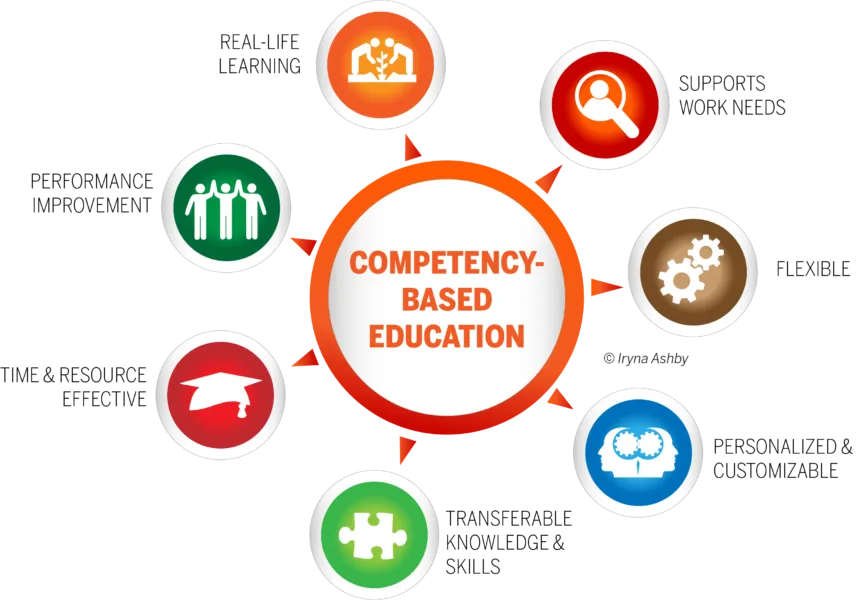
Blog
The Non-Clinical Gig Learning Hub

Why Competency-Based Education Is the Future of Healthcare Education
Why Competency-Based Education Is the Future of Healthcare Education
The healthcare industry is evolving rapidly. Advances in technology, changes in patient demographics, and an increasing emphasis on outcomes-based care are transforming how healthcare professionals must be trained. In this fast-paced and high-stakes environment, the traditional time-based educational model—where students progress based on credit hours and seat time—is struggling to keep up.
Enter competency-based education (CBE): a learner-centered, outcome-focused approach that emphasizes what a student knows and can do, not how long they spent in a classroom. In healthcare education, where precision, critical thinking, and hands-on ability can mean the difference between life and death, CBE is not just innovative—it’s essential.
What Is Competency-Based Education?
Competency-Based Education measures learning based on clearly defined outcomes—competencies—that a student must demonstrate before moving forward. These competencies include both technical skills (like taking vitals or performing assessments) and soft skills (like communication, teamwork, and ethical decision-making).
Key features of CBE include:
Personalized pacing: Students advance when they demonstrate mastery—not after a fixed semester ends.
Real-world application: Education is aligned with what professionals actually do in the field.
Clear, measurable outcomes: Learning is mapped to specific, observable skills and knowledge.
Frequent feedback: Assessment is ongoing and used to guide improvement, not just grade performance.
Why Healthcare Demands Competency
Patient Safety and Quality Care
In healthcare, competency isn’t optional—it’s critical. A nurse who passes pharmacology but can’t safely administer medication puts patients at risk. CBE ensures that learners don’t just memorize—they can do.Closing the Theory-to-Practice Gap
Many new healthcare graduates report feeling unprepared for the real-world challenges of clinical practice. CBE bridges this gap by integrating simulation, clinical reasoning, and hands-on performance directly into the learning process.Better Workforce Readiness
Competency-based programs often align with professional standards and employer expectations. This makes new graduates more workforce-ready, more confident, and less likely to leave the profession early due to burnout or lack of preparation.Adaptability for Adult and Nontraditional Learners
Many students entering healthcare programs today are career changers, parents, or working adults. CBE’s flexible pacing and online delivery options allow learners to progress on their own time—accelerating when they master content quickly or slowing down when they need more practice.Alignment with Value-Based Care
Just as healthcare is shifting from volume to value, education must follow suit. CBE reflects this shift by focusing on outcomes—ensuring that healthcare professionals can deliver competent, high-quality care in diverse, dynamic settings.
Leading the Way: Competency-Based Models in Action
Forward-thinking institutions are already integrating CBE into healthcare education:
Nursing: Programs like Western Governors University and Chamberlain University offer CBE tracks in nursing, allowing students to earn RN-to-BSN or MSN degrees based on demonstrated skills.
Medical Education: The AAMC and AMA support competency-based medical education frameworks that replace the traditional time-based approach with milestone progression.
Allied Health & Rehab Professions: Physical therapy, occupational therapy, and other allied health fields are increasingly incorporating CBE elements into clinical education and licensure preparation.
The Challenges (and Why They’re Worth It)
Yes, transitioning to CBE comes with challenges—redesigning curricula, retraining faculty, updating assessment methods, and overcoming accreditation barriers. But the return on investment is high: better-prepared graduates, improved patient care, and a more agile, responsive healthcare workforce.
Final Thoughts: From Knowledge to Competence
In healthcare, knowing about health isn’t enough—professionals must be competent in applying their knowledge under pressure, with compassion, and in real time. That’s why competency-based education isn’t just a trend; it’s the future of healthcare education.
By focusing on outcomes over seat time, skill over theory, and mastery over memorization, CBE ensures that tomorrow’s healthcare providers are not only knowledgeable—but capable, confident, and compassionate from day one.
Find your new career

